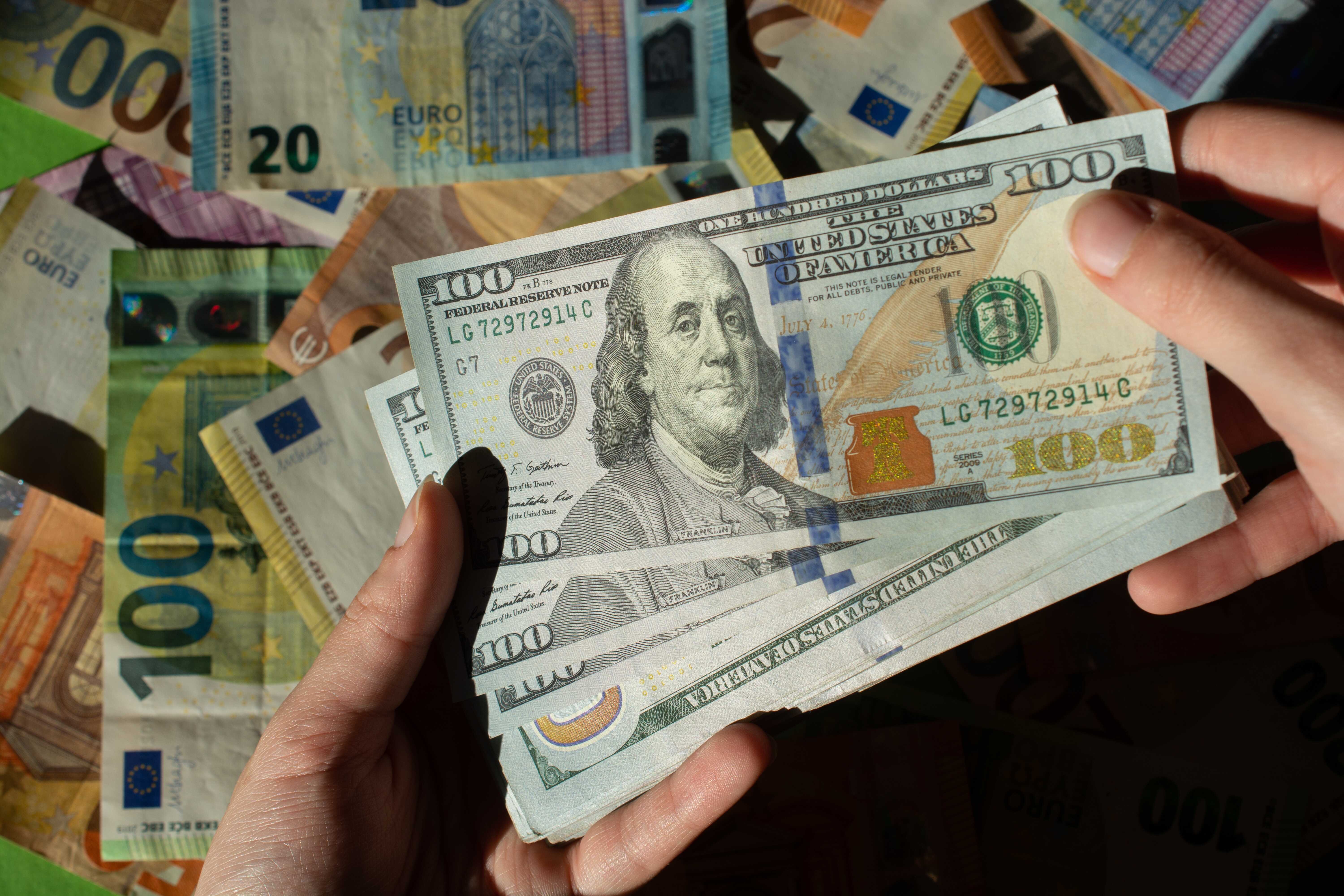Should You Forget Bigbear.ai And Buy These 2 Millionaire-maker Stocks Instead?

BigBear.ai (NYSE: BBAI), a developer of artificial intelligence (AI)-oriented analytics tools, has taken its investors on a wild ride since it went public by merging with a special purpose acquisition company (SPAC) three years ago. The combined company's stock opened at $9.84, rose to a record high of $12.69 in April 2022, but sank below $1 by December 2022.
Like many SPAC-backed start-ups, BigBear.ai overpromised and underdelivered. It originally claimed it could grow its revenue from $182 million in 2021 to $388 million in 2023, but its revenue only rose from $146 million to $155 million during that period. It blamed that slowdown on macroeconomic headwinds, competition, and the bankruptcy of its major customer Virgin Orbit in 2023. CEO Reggie Brothers also stepped down in late 2022.
Start Your Mornings Smarter! Wake up with Breakfast news in your inbox every market day. Sign Up For Free »
Image source: Getty Images.
BigBear.ai has shown some signs of stabilization under its current CEO, Mandy Long, but it's still a highly speculative stock. For 2024, analysts expect its revenue to rise 8% as its adjusted earnings before interest, taxes, depreciation, and amortization (EBITDA) approaches breakeven. For 2025, they expect its revenue to rise 14% to $192.5 million as it achieves a positive adjusted EBITDA of $4.8 million. A lot of that growth should be driven by new government contracts.
That progress is encouraging, but BigBear.ai's enterprise value of $1.2 billion still values it at more than 240 times this year's adjusted EBITDA. That premium valuation could limit its near-term success and prevent it from delivering millionaire-making gains. So instead of taking a chance on BigBear.ai's long-shot comeback, investors might be better off buying some shares of these two potential millionaire-makers instead: Nu Holdings (NYSE: NU) and PDD Holdings (NASDAQ: PDD).
Nu Holdings
Nu owns the largest digital bank in Latin America. As a digital-only bank, it expanded much faster than its brick-and-mortar competitors. Its total number of customers more than tripled from 33.3 million at the end of 2021 to 109.7 million in the third quarter of 2024.
Nu's activity rate (its active customers divided by total customers) rose from 76% to 84% during the same period as it rolled out more checking, credit card, lending, insurance, investment, cryptocurrency, and business-oriented services. It also tethered more retailers to its Nubank Shopping e-commerce app, which hit 255 million visits in 2023.
As Nu gains more customers, it's rolling out more AI tools to analyze its customer data, run chatbots, and strengthen its own cybersecurity defenses. It even launched its own cellular service, NuCel, to draw more customers to its mobile apps.
From 2021 to 2023, Nu's revenue grew at a compound annual growth rate (CAGR) of 117%. It also turned profitable on a generally accepted accounting principles (GAAP) basis in 2023. Yet it could still have plenty of room to expand because the World Bank estimates that at least 70% of Latin America's population remains unbanked.
From 2023 to 2026, analysts expect Nu's revenue and earnings per share (EPS) to grow at a CAGR of 35% and 55%, respectively, as that fertile market expands. Those are stunning growth rates for a stock that trades at just 20 times forward earnings. Assuming it maintains that momentum over the next decade, its stock could soar higher and generate some life-changing gains.
PDD Holdings
PDD is the third-largest e-commerce company in China (in terms of annual revenue) after Alibaba and JD.com. However, it's growing a lot faster than both of those market leaders and most of its industry peers.
From 2018 to 2023, PDD's revenue grew at a CAGR of 80% (in Chinese renminbi terms). It also turned profitable on a GAAP basis in 2021 as it cut costs and phased out its lower-margin first-party marketplace. Its GAAP net income then grew at a CAGR of 178% from 2021 to 2023. That explosive expansion was driven by its discount marketplace, which encouraged shoppers to team up for bulk purchases; and its online agricultural marketplace, which directly connected farmers to shoppers.
Those strategies locked in hundreds of millions of shoppers and widened its moat against Alibaba and JD. PDD then capitalized on its growth in China and expanded internationally with Temu, which connected its Chinese merchants to overseas buyers. Temu subsequently became a threat to Amazon by evolving into one of the fastest-growing e-commerce platforms in the U.S. and other overseas markets, and it's gradually diversifying its business away from China.
From 2023 to 2026, analysts expect PDD's revenue and EPS to grow at a CAGR of 34% and 36%, respectively. Those are astonishing growth rates for a stock that trades at just 8 times forward earnings. PDD's valuations are being compressed by China's macroeconomic challenges and fears of higher tariffs against Chinese goods, but it could bounce back quickly if those headwinds dissipate. If that happens, it could generate some millionaire-making gains for its patient investors.
Should you invest $1,000 in BigBear.ai right now?
Before you buy stock in BigBear.ai, consider this:
The Motley Fool Stock Advisor analyst team just identified what they believe are the 10 best stocks for investors to buy now… and BigBear.ai wasn’t one of them. The 10 stocks that made the cut could produce monster returns in the coming years.
Consider when Nvidia made this list on April 15, 2005... if you invested $1,000 at the time of our recommendation, you’d have $858,668!*
Stock Advisor provides investors with an easy-to-follow blueprint for success, including guidance on building a portfolio, regular updates from analysts, and two new stock picks each month. The Stock Advisor service has more than quadrupled the return of S&P 500 since 2002*.
*Stock Advisor returns as of January 6, 2025
John Mackey, former CEO of Whole Foods Market, an Amazon subsidiary, is a member of The Motley Fool's board of directors. Leo Sun has positions in Amazon. The Motley Fool has positions in and recommends Amazon. The Motley Fool recommends Alibaba Group, JD.com, and Nu Holdings. The Motley Fool has a disclosure policy.

